4th WPSA International (Virtual)
ONE HEALTH CONFERENCE – 2021
Lab to Land
Conference Themes
United Nations approach that aims to unify cooperation and communication across all aspects of human, animal and environmental healthcare in a common body called One Health. The goal is to better understand and overcome current and future issues in all areas of healthcare. By doing so, it will advance research strategies and improve our scientific understanding of complex mechanisms affecting the environment, human and animal health. There is an urgent need to control the spread of infectious diseases, to prevent and potentially prevent future threats. We need to expand our knowledge to deal with current and emerging problems at local, national and global levels. Increasing antimicrobial resistance, rapidly spreading new zoonotic diseases, air pollution, climate change, increasing demand for food – these are just some of the many challenges that need to be urgently addressed. There themes of the conference are : Antimicrobial Resistance (AMR), Zoonosis, Poultry Health and Environmental factors contributing to One Health
Objective
The main objective of the conference is to strengthen interactions and communication and to achieve Joint collaboration between physicians, veterinarians and all appropriate stakeholders to improve various features of the health and well-being of humans, animals and the environment.
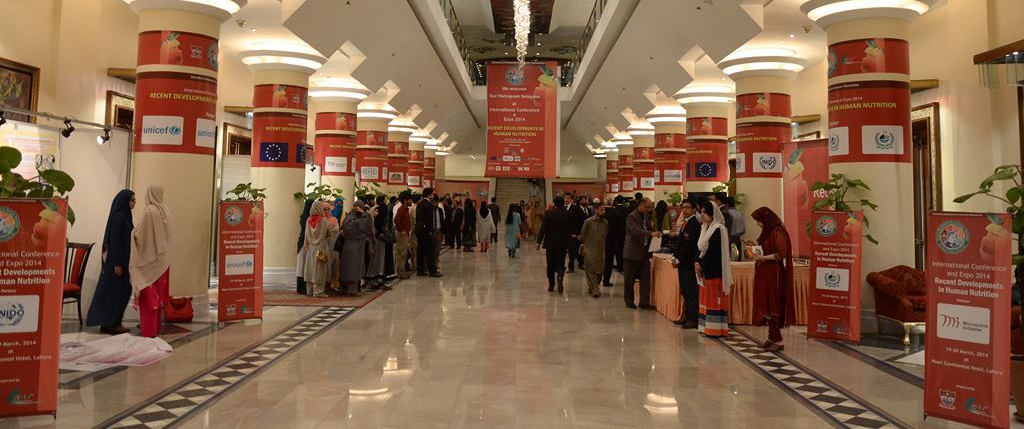


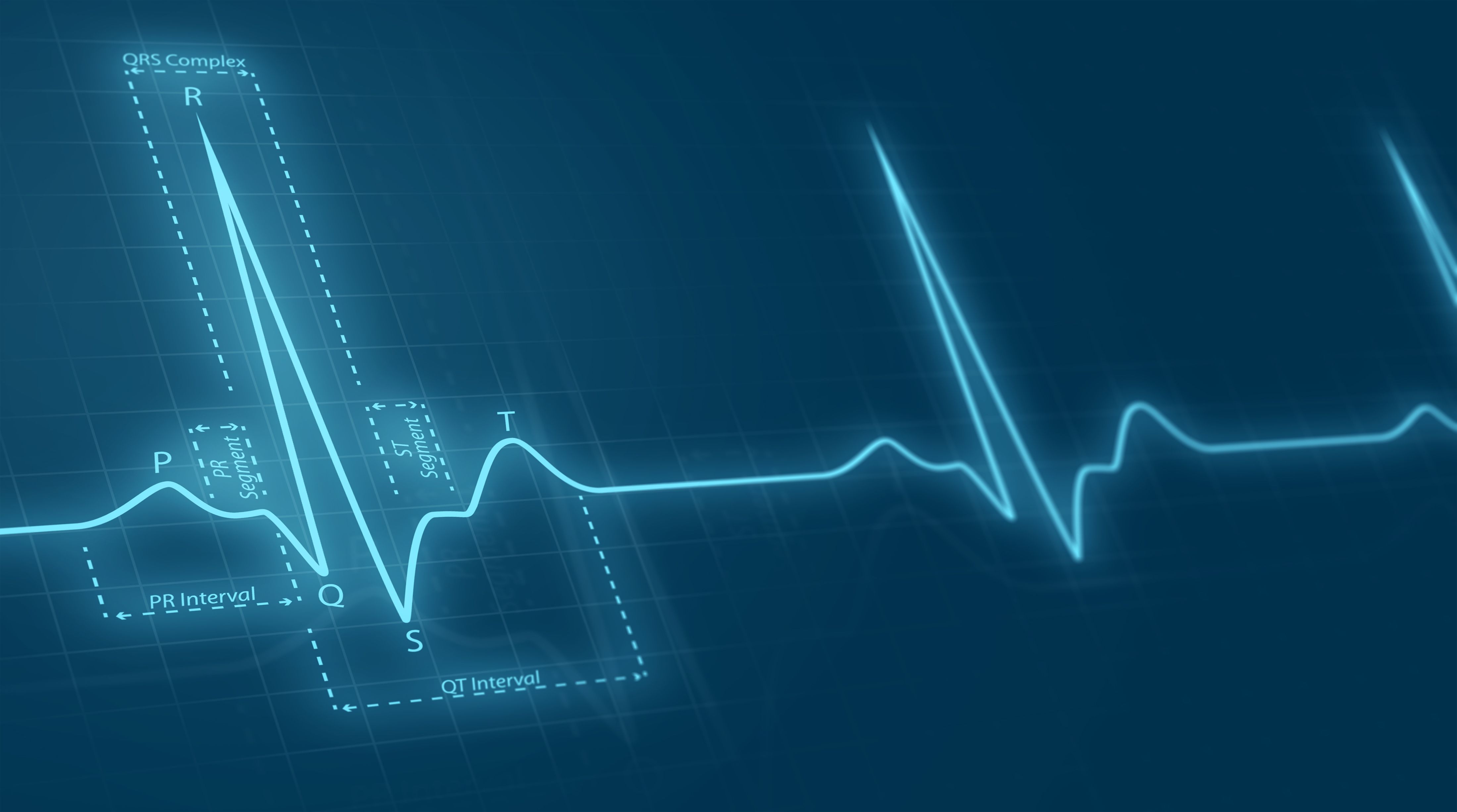
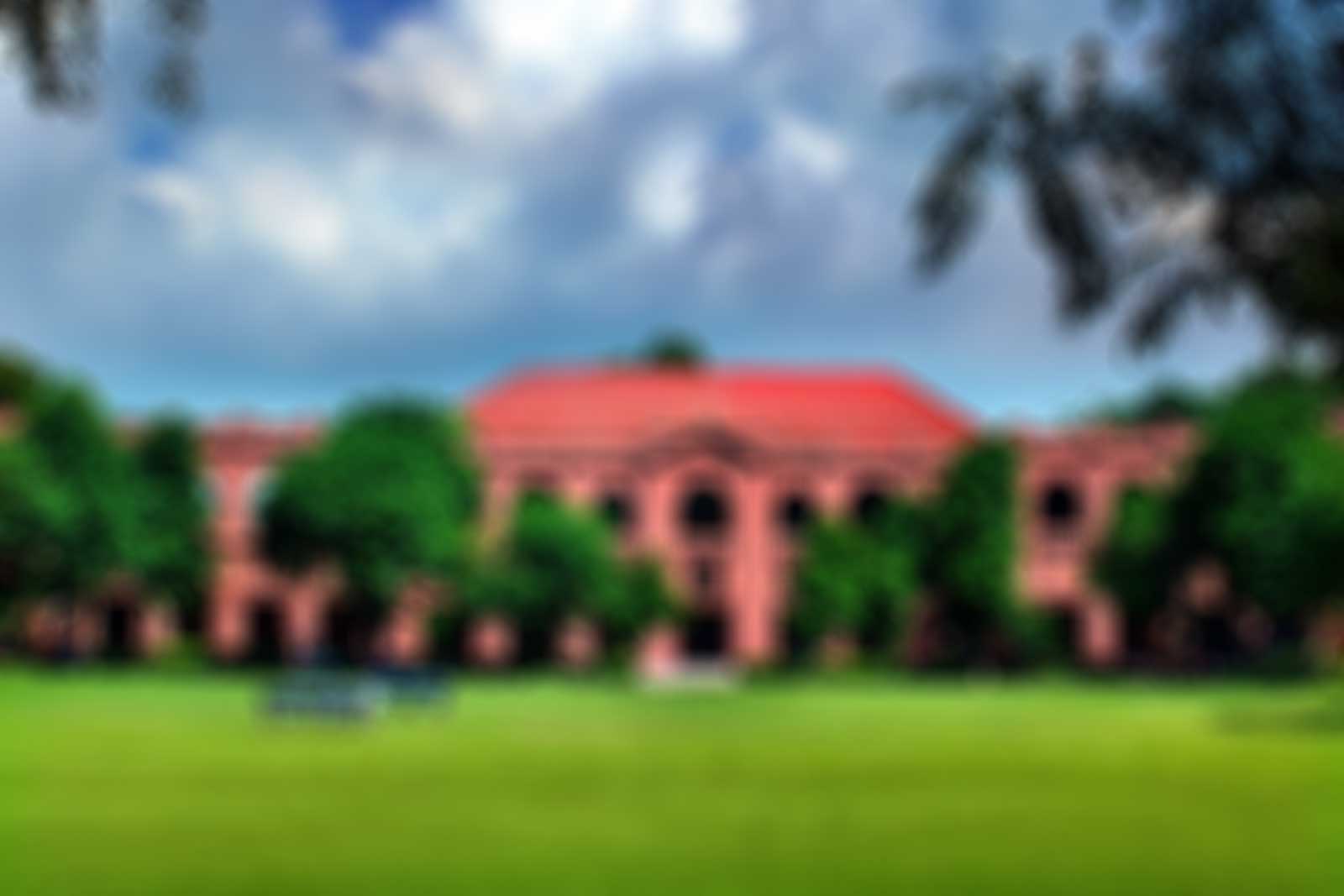
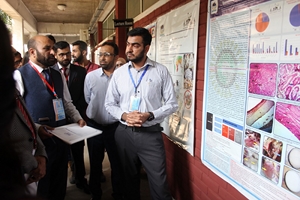
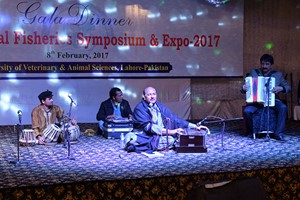

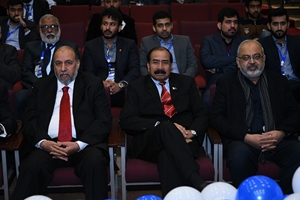
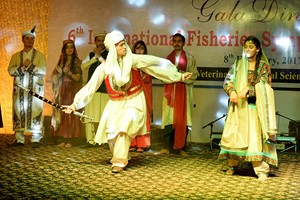
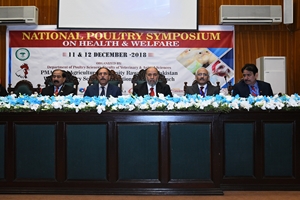

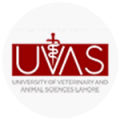
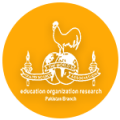

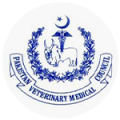
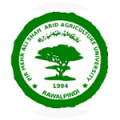
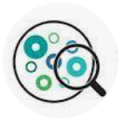

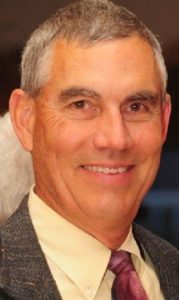 Mr. Philip “Skip” Kemp Jr. has been involved with aquaculture since 1969 when he started growing channel catfish on the family farm where he constructed a raceway system for growing channel catfish. His primary career was in academia where he taught and advised aquaculture and seafood marketing clients. He worked in extension for North Carolina State University, Sea Grant Program and taught the Aquaculture Technology program for Carteret Community College. Primary emphasis was workforce training with practical hands-on skills to compliment the classroom subjects of Aquaculture Principles, Water Quality, Nutrition and Diseases, Hatchery Management and AquaBusiness. Recently retired, he now assists aquatic business clients with technical problem solving and workforce training. A major client is the USSEC IPA project and introducing the IPRS system in India, Bangladesh, Turkey and Egypt.
Mr. Philip “Skip” Kemp Jr. has been involved with aquaculture since 1969 when he started growing channel catfish on the family farm where he constructed a raceway system for growing channel catfish. His primary career was in academia where he taught and advised aquaculture and seafood marketing clients. He worked in extension for North Carolina State University, Sea Grant Program and taught the Aquaculture Technology program for Carteret Community College. Primary emphasis was workforce training with practical hands-on skills to compliment the classroom subjects of Aquaculture Principles, Water Quality, Nutrition and Diseases, Hatchery Management and AquaBusiness. Recently retired, he now assists aquatic business clients with technical problem solving and workforce training. A major client is the USSEC IPA project and introducing the IPRS system in India, Bangladesh, Turkey and Egypt.
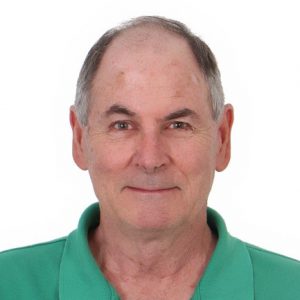 Mark Newman completed his Bachelor of Science degree in Fisheries Biology at Humboldt State University in 1975 and his Master of Science degree in Marine Biology at the University of Miami in 1981. He has worked for more than 40 years in the fields of aquaculture, aquaculture nutrition, the manufacture of aquafeeds, and fisheries biology. He worked for a major U.S. feed manufacturer in the U.S. and Ecuador for 20 years in the areas of nutrition, quality assurance, management, and technical support of sales. He has commercially farmed marine shrimp and has conducted nutritional research with tilapia, Pacific salmon, freshwater prawns, a variety of marine fish, and marine shrimp. For the past 10 years he has been an aquaculture nutrition and feedmill consultant for USSEC and other customers providing technical assistance to feedmill companies and large aquaculture operations in many parts of the world.
Mark Newman completed his Bachelor of Science degree in Fisheries Biology at Humboldt State University in 1975 and his Master of Science degree in Marine Biology at the University of Miami in 1981. He has worked for more than 40 years in the fields of aquaculture, aquaculture nutrition, the manufacture of aquafeeds, and fisheries biology. He worked for a major U.S. feed manufacturer in the U.S. and Ecuador for 20 years in the areas of nutrition, quality assurance, management, and technical support of sales. He has commercially farmed marine shrimp and has conducted nutritional research with tilapia, Pacific salmon, freshwater prawns, a variety of marine fish, and marine shrimp. For the past 10 years he has been an aquaculture nutrition and feedmill consultant for USSEC and other customers providing technical assistance to feedmill companies and large aquaculture operations in many parts of the world.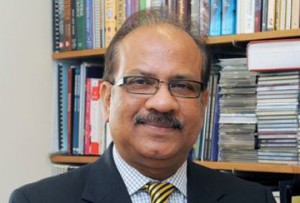 Dr. Ahmed Mustafa is a professor of Biology at Purdue University, Fort Wayne, IN, USA. At Purdue University- Fort Wayne, he teaches physiology and pharmacology and takes an active role in the service of his students. His research concerns stress and immunity of aquatic life and prevention of diseases with alternatives to drug therapy.
Professor Mustafa earned a Bachelor of Science with honors and Master of Science from Dhaka University, Bangladesh, a Candidatus Magisterri from University of Bergen, Norway, and a Ph.D. from the University of New Brunswick, Canada, all with distinctions. From the University of New Brunswick, Canada, he has also earned a Diploma in University Teaching. Professor Mustafa has published numerous peer-reviewed research articles that have resulted in several citations globally. He works as editors and reviewers for several journals, and as expert examiners for Ph.D. dissertations.
As part of his commitment to his students and campus life, Professor Mustafa has served as the faculty advisor to the Bangladesh Students’ Association and Tri-Beta Biological Honor Society, in addition to his role as Vice President of the Honor Society of Phi Kappa Phi. Professor Mustafa has received numerous awards in recognition of his outstanding contributions to the campus community, including the Teacher of the Year, Advisor of the Year, Student’s Choice Award for Teaching Excellence, the Pippert Science Research Scholar Award, the Community Advisory Council Service to Students Award, the Special Service Award, and Outstanding Teacher Award from Purdue University Fort Wayne.
Purdue University Fort Wayne has awarded Professor Ahmed Mustafa as the 2014 Featured Faculty for excellence in research and 2018 Featured Faculty for excellence in teaching.
Dr. Ahmed Mustafa is a professor of Biology at Purdue University, Fort Wayne, IN, USA. At Purdue University- Fort Wayne, he teaches physiology and pharmacology and takes an active role in the service of his students. His research concerns stress and immunity of aquatic life and prevention of diseases with alternatives to drug therapy.
Professor Mustafa earned a Bachelor of Science with honors and Master of Science from Dhaka University, Bangladesh, a Candidatus Magisterri from University of Bergen, Norway, and a Ph.D. from the University of New Brunswick, Canada, all with distinctions. From the University of New Brunswick, Canada, he has also earned a Diploma in University Teaching. Professor Mustafa has published numerous peer-reviewed research articles that have resulted in several citations globally. He works as editors and reviewers for several journals, and as expert examiners for Ph.D. dissertations.
As part of his commitment to his students and campus life, Professor Mustafa has served as the faculty advisor to the Bangladesh Students’ Association and Tri-Beta Biological Honor Society, in addition to his role as Vice President of the Honor Society of Phi Kappa Phi. Professor Mustafa has received numerous awards in recognition of his outstanding contributions to the campus community, including the Teacher of the Year, Advisor of the Year, Student’s Choice Award for Teaching Excellence, the Pippert Science Research Scholar Award, the Community Advisory Council Service to Students Award, the Special Service Award, and Outstanding Teacher Award from Purdue University Fort Wayne.
Purdue University Fort Wayne has awarded Professor Ahmed Mustafa as the 2014 Featured Faculty for excellence in research and 2018 Featured Faculty for excellence in teaching.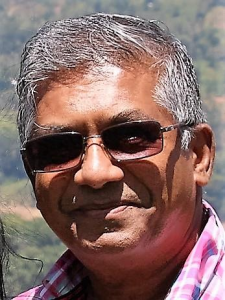 Rohana Subasinghe is a specialist in aquaculture development and aquatic animal health management. He retired from FAO in October 2015, while serving as the Chief of the Aquaculture Brach. He joined FAO in 1994 and took responsibility in implementing many projects on aquaculture and aquatic animal health at national, regional and international levels worldwide until his retirement. Among others, at FAO, he was also responsible for analyses of trends in aquaculture development globally. For fifteen years, he served as the Technical Secretary to the Sub-Committee on Aquaculture of the Committee on Fisheries of the FAO, the only global inter-governmental forum on aquaculture which meets every two years. A former teacher of the University of Colombo and the Universiti Putra Malaysia, Rohana earned his PhD from Stirling University. Rohana is a strong advocate of sustainable, responsible and equitable aquaculture and harnessing its significant contribution to poverty alleviation and food and nutrition security. His passion is to increase fish consumption among rural poor, especially childbearing women and young children, towards improving their health. Rohana is still active in the field of fisheries and aquaculture, currently extending his years of experience and expertise, as a consultant, to many agencies and institutions worldwide.
Rohana Subasinghe is a specialist in aquaculture development and aquatic animal health management. He retired from FAO in October 2015, while serving as the Chief of the Aquaculture Brach. He joined FAO in 1994 and took responsibility in implementing many projects on aquaculture and aquatic animal health at national, regional and international levels worldwide until his retirement. Among others, at FAO, he was also responsible for analyses of trends in aquaculture development globally. For fifteen years, he served as the Technical Secretary to the Sub-Committee on Aquaculture of the Committee on Fisheries of the FAO, the only global inter-governmental forum on aquaculture which meets every two years. A former teacher of the University of Colombo and the Universiti Putra Malaysia, Rohana earned his PhD from Stirling University. Rohana is a strong advocate of sustainable, responsible and equitable aquaculture and harnessing its significant contribution to poverty alleviation and food and nutrition security. His passion is to increase fish consumption among rural poor, especially childbearing women and young children, towards improving their health. Rohana is still active in the field of fisheries and aquaculture, currently extending his years of experience and expertise, as a consultant, to many agencies and institutions worldwide.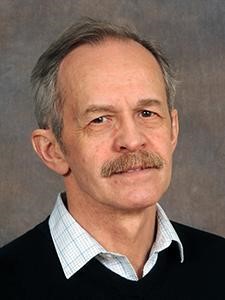 Konrad Dabrowski is Professor at School of Natural Resources, The Ohio State
University, 2021 Coffey Rd., Columbus, Ohio. Dr. Konard had also served as Visiting Professor in a number of world renowned institutes including Institute of Zoology, University of Innsbruck, Austria (1987-1989), Department of Biology, University of Paris, Orsey, France (1985), Department of Aquaculture, Japanese Society for Promotion of Science, University of Fisheries, Tokyo (1984-1985). He had been the part of Inland Fisheries and Water Protection, Agriculture University, Poland (1972-1987) as Assistant/Associate Professor. He is member of different famous professional societies like American Fisheries Society, Japanese Society of Scientific Fisheries, World Aquaculture Society, European Aquaculture Society. He is the Editorial Board member of “Aquatic Living Resources”, “Aquaculture”, “Korean Journal of Aquaculture” and “Archives of Polish Fisheries”. He has written many books underlying Aquaculture subject and published 400 peer-reviewed publications.
Konrad Dabrowski is Professor at School of Natural Resources, The Ohio State
University, 2021 Coffey Rd., Columbus, Ohio. Dr. Konard had also served as Visiting Professor in a number of world renowned institutes including Institute of Zoology, University of Innsbruck, Austria (1987-1989), Department of Biology, University of Paris, Orsey, France (1985), Department of Aquaculture, Japanese Society for Promotion of Science, University of Fisheries, Tokyo (1984-1985). He had been the part of Inland Fisheries and Water Protection, Agriculture University, Poland (1972-1987) as Assistant/Associate Professor. He is member of different famous professional societies like American Fisheries Society, Japanese Society of Scientific Fisheries, World Aquaculture Society, European Aquaculture Society. He is the Editorial Board member of “Aquatic Living Resources”, “Aquaculture”, “Korean Journal of Aquaculture” and “Archives of Polish Fisheries”. He has written many books underlying Aquaculture subject and published 400 peer-reviewed publications. Prof. Tillit is branch Chief, Biochemistry and Physiology Branch, Columbia Environmental Research Center, Biological Resources Division, US Geological Survey. Supervise section research, including early life stage toxicity in fish, reproductive toxicology in fishes, in vitro bioassay development, biochemical mechanisms of toxicity, and monitoring of fish health in the environment. The research interests of Prof. Tillit includes; Reproductive and developmental toxicity of environmental contaminants in fish and wildlife, Biochemical, molecular, and genomic techniques to assess the effects of complex mixtures of environmental contaminants, Physiological, histological and biochemical effects of environmental contaminants in aquatic organisms as sublethal indicators of stress, Reproduction and endocrine disruption in fish, Thiamine deficiency and early mortality syndrome in Great Lakes salmonines and Contaminant effects on sturgeon. He achieved 21 national and international awards and honors including star awards. He is an active member of Society of Environmental Toxicology and Chemistry and Editor of “Environmental Toxicology and Chemistry” journal. He made numerous presentations (>500), both offered and invited at local, regional, national and international scientific meetings, workshops, symposia, and university lecture series. Moreover, he is the author of a book “Reproductive and Developmental Effects of Contaminants in Oviparous Vertebrates’’ and several peer reviewed research articles.
Prof. Tillit is branch Chief, Biochemistry and Physiology Branch, Columbia Environmental Research Center, Biological Resources Division, US Geological Survey. Supervise section research, including early life stage toxicity in fish, reproductive toxicology in fishes, in vitro bioassay development, biochemical mechanisms of toxicity, and monitoring of fish health in the environment. The research interests of Prof. Tillit includes; Reproductive and developmental toxicity of environmental contaminants in fish and wildlife, Biochemical, molecular, and genomic techniques to assess the effects of complex mixtures of environmental contaminants, Physiological, histological and biochemical effects of environmental contaminants in aquatic organisms as sublethal indicators of stress, Reproduction and endocrine disruption in fish, Thiamine deficiency and early mortality syndrome in Great Lakes salmonines and Contaminant effects on sturgeon. He achieved 21 national and international awards and honors including star awards. He is an active member of Society of Environmental Toxicology and Chemistry and Editor of “Environmental Toxicology and Chemistry” journal. He made numerous presentations (>500), both offered and invited at local, regional, national and international scientific meetings, workshops, symposia, and university lecture series. Moreover, he is the author of a book “Reproductive and Developmental Effects of Contaminants in Oviparous Vertebrates’’ and several peer reviewed research articles. Dr. Riaz is Director, Process Engineering Research & Development Center, Head of the Extrusion Technology Program- Food Protein and IFANCA Professor in Food Diversity, Nutrition and Food Science in Texas A & M University System. His Professional Interests include Extrusion Processes Feeds and Pet Food Extrusion, Cereals and Snacks Extrusion, Oil Seed Processing, Food Technology, Recycling of Food By-products, Ethnic and Religious Food, Food Product Development and Aquaculture Feed Texturization of Vegetable Protein. Professor Riaz has written full 7 books and 22 chapters in international books related to his expertise. He is the Professional Member of Institute of Food Technologist, American Oil Chemists' Society, American Association of Cereal Chemists, Islamic Food and Nutrition Council of America, Phi Beta Delta (Honor Society for International Scholars) and Life time Member of Pakistan Society of Food Scientist & Technologists. He has 135 well reputed publications and 450 presentations on national and international forums.
Dr. Riaz is Director, Process Engineering Research & Development Center, Head of the Extrusion Technology Program- Food Protein and IFANCA Professor in Food Diversity, Nutrition and Food Science in Texas A & M University System. His Professional Interests include Extrusion Processes Feeds and Pet Food Extrusion, Cereals and Snacks Extrusion, Oil Seed Processing, Food Technology, Recycling of Food By-products, Ethnic and Religious Food, Food Product Development and Aquaculture Feed Texturization of Vegetable Protein. Professor Riaz has written full 7 books and 22 chapters in international books related to his expertise. He is the Professional Member of Institute of Food Technologist, American Oil Chemists' Society, American Association of Cereal Chemists, Islamic Food and Nutrition Council of America, Phi Beta Delta (Honor Society for International Scholars) and Life time Member of Pakistan Society of Food Scientist & Technologists. He has 135 well reputed publications and 450 presentations on national and international forums.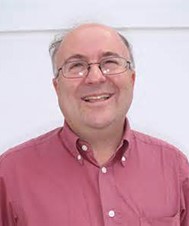 Professor Simon Davies currently holds a Chair in Fish Nutrition and Aquaculture at the Department of Animal Production, Welfare and Veterinary Sciences at Harper Adams University in England. He formerly headed the Aquaculture Nutrition group within the School of Biosciences for 29 years at Plymouth University. He is an acknowledged international expert in the nutrition of cultured or fish species having served academia and specializing in fish nutrition for over 35 years. Professor Davies is the Editor-in-Chief of International Aqua Feed magazine with a wide global circulation and on the editorial board of numerous scientific journals. He has been director of Studies for 30 PhD students and over 100 Masters’ student projects. He led the acclaimed Masters programme in Sustainable Aquaculture Systems at Plymouth University. His research is principally directed towards improving the production efficiency, health and welfare of farm raised fish and is internationally credited for providing new and better understanding of the nutritional requirements of fish and formulating effective feeds for their growth and development from the hatchery to the table.
Professor Simon Davies currently holds a Chair in Fish Nutrition and Aquaculture at the Department of Animal Production, Welfare and Veterinary Sciences at Harper Adams University in England. He formerly headed the Aquaculture Nutrition group within the School of Biosciences for 29 years at Plymouth University. He is an acknowledged international expert in the nutrition of cultured or fish species having served academia and specializing in fish nutrition for over 35 years. Professor Davies is the Editor-in-Chief of International Aqua Feed magazine with a wide global circulation and on the editorial board of numerous scientific journals. He has been director of Studies for 30 PhD students and over 100 Masters’ student projects. He led the acclaimed Masters programme in Sustainable Aquaculture Systems at Plymouth University. His research is principally directed towards improving the production efficiency, health and welfare of farm raised fish and is internationally credited for providing new and better understanding of the nutritional requirements of fish and formulating effective feeds for their growth and development from the hatchery to the table.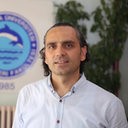 Professor Orhan Tufan Eroldogan is serving the Faculty of Fisheries, University of Çukurova, Adana, Turkey since 2014. He has a Masters degree in Aquaculture and Nutrition and a doctorate in Fish Nutrition, both from the University of Cukurova, Turkey. In 2003, Dr. Eroldogan was awarded a Moshe Greidingier Scholarship to do first Post Doc. study on nutritional status of Asian sea bass in fresh and seawater at Department of Aquaculture, The Volcani Center, in Israel. Afterwards, Dr. Eroldogan was awarded by Research Council of Norway for learning and working in a nutrigenomic field in Norway for the second Post Doc study. Emphasis was laid on developing new sustainable diets to carnivorous species i.e. Atlantic salmon and cod. His research interests span from fish nutrition to food quality, lipids, fatty acid and omega-3 metabolism, fish oil replacement and fatty acid metabolism in cultured aquatic species, fatty acid-micronutrients interactions, seafood quality. Apart from research on fish nutrition Dr. Eroldogan got also much experience in the field of nutrigenomic and proteomic when he worked in Barcelona University, Department of Physiology. Throughout his career, Dr. Eroldogan has published extensively and has engaged in several research activities funded by both, governmental agencies and private industries with several national and international collaborators. Deeply committed to fish nutrition in all its aspects, he is involved in national and international research programs, and has more than 70 publications.
Professor Orhan Tufan Eroldogan is serving the Faculty of Fisheries, University of Çukurova, Adana, Turkey since 2014. He has a Masters degree in Aquaculture and Nutrition and a doctorate in Fish Nutrition, both from the University of Cukurova, Turkey. In 2003, Dr. Eroldogan was awarded a Moshe Greidingier Scholarship to do first Post Doc. study on nutritional status of Asian sea bass in fresh and seawater at Department of Aquaculture, The Volcani Center, in Israel. Afterwards, Dr. Eroldogan was awarded by Research Council of Norway for learning and working in a nutrigenomic field in Norway for the second Post Doc study. Emphasis was laid on developing new sustainable diets to carnivorous species i.e. Atlantic salmon and cod. His research interests span from fish nutrition to food quality, lipids, fatty acid and omega-3 metabolism, fish oil replacement and fatty acid metabolism in cultured aquatic species, fatty acid-micronutrients interactions, seafood quality. Apart from research on fish nutrition Dr. Eroldogan got also much experience in the field of nutrigenomic and proteomic when he worked in Barcelona University, Department of Physiology. Throughout his career, Dr. Eroldogan has published extensively and has engaged in several research activities funded by both, governmental agencies and private industries with several national and international collaborators. Deeply committed to fish nutrition in all its aspects, he is involved in national and international research programs, and has more than 70 publications.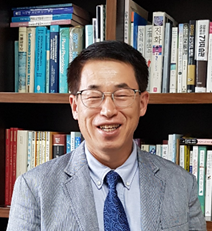 Professor Tae-Jin Choi studied Plant Pathology at Seoul National University and got his Master for the study on a plant pathogenic fungus. After his master, he got the Korean Government Abroad Scholarship and went to University of California at Berkeley. He studied molecular biology of a plant Rhabdovirus for his Ph.D. and work on a plant Tospovirus for his post-doc at University of Wisconsin at Madison. Despite of his excellent experience on plant virology, he ended up with a professor position for fish virology about 25 years ago. Since then devoted himself for the research on diagnostics and prevention of fish and shrimp viruses, and have published over 80 research papers and trained over 50 master and Ph.D students including several foreign students. In addition to scientific research in his lab, he was interested in real aquaculture filed and research section of the government. So, worked for one and half years as the Director of the Biotechnology Research Institute, at the National Fisheries Research and Development Institute, a government research institute. He is serving concurrently as the Director of research Division of Chloland, a company producing concentrated chlorella for aquaculture. He also, served as a member of several government committees on fisheries and agriculture.
Professor Tae-Jin Choi studied Plant Pathology at Seoul National University and got his Master for the study on a plant pathogenic fungus. After his master, he got the Korean Government Abroad Scholarship and went to University of California at Berkeley. He studied molecular biology of a plant Rhabdovirus for his Ph.D. and work on a plant Tospovirus for his post-doc at University of Wisconsin at Madison. Despite of his excellent experience on plant virology, he ended up with a professor position for fish virology about 25 years ago. Since then devoted himself for the research on diagnostics and prevention of fish and shrimp viruses, and have published over 80 research papers and trained over 50 master and Ph.D students including several foreign students. In addition to scientific research in his lab, he was interested in real aquaculture filed and research section of the government. So, worked for one and half years as the Director of the Biotechnology Research Institute, at the National Fisheries Research and Development Institute, a government research institute. He is serving concurrently as the Director of research Division of Chloland, a company producing concentrated chlorella for aquaculture. He also, served as a member of several government committees on fisheries and agriculture. Dr. Amonrat Sermwatanakul is Senior Expert in Fisheries Management, Department of Fisheries, 50 Kaset Klang, Chatuchak, Thailand. Previously, she was Senior Expert in Ornamental Fish (2006-2017). Dr. Amonrat has not only been recognized in supporting the farmers in Thailand, but also for supporting the Network for Promotion of Gender in Fisheries Management and Development in the Lower Mekong Basin (NGF) for 10 years. In 2008 Amonrat was awarded the Department of Fisheries government award for National Outstanding for Gender Ability. In 2015, Amonrat was recognized by Network of Aquaculture Centres in Asia-Pacific (NACA) for her contribution on in-country assessment and gender analysis in aquaculture value chain of small-scale shrimp farming and tilapia cage culture in Thailand. Dr. Amonrat also received outstanding senior official level award from Thailand Department of Fisheries in 2015.
Dr. Amonrat Sermwatanakul is Senior Expert in Fisheries Management, Department of Fisheries, 50 Kaset Klang, Chatuchak, Thailand. Previously, she was Senior Expert in Ornamental Fish (2006-2017). Dr. Amonrat has not only been recognized in supporting the farmers in Thailand, but also for supporting the Network for Promotion of Gender in Fisheries Management and Development in the Lower Mekong Basin (NGF) for 10 years. In 2008 Amonrat was awarded the Department of Fisheries government award for National Outstanding for Gender Ability. In 2015, Amonrat was recognized by Network of Aquaculture Centres in Asia-Pacific (NACA) for her contribution on in-country assessment and gender analysis in aquaculture value chain of small-scale shrimp farming and tilapia cage culture in Thailand. Dr. Amonrat also received outstanding senior official level award from Thailand Department of Fisheries in 2015.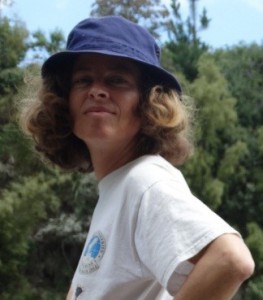 Piria Marina, is DSc of Biotechnical science, Fisheries (Fish ecology and biology). She is presently working as Associate professor, Faculty of Agriculture, Department of fisheries, beekeeping, game management and spec. zoology University of Zagreb from 2012-Present. She worked from 2008–2012 as Assistant professor, 2003–2007 as Assistant and 1998–2003 as Young assistant in same faculty. From 1st November 2014 to 15th June 2015 served as Visiting scientist of Massey University Institute of Agriculture and Environment, Palmerston North, New Zealand. She is currently running many national & international funded projects, the renowned are from the European Union and completed many like these. She has presented many papers in the international conferences and member of many renowned scientific societies of the world. She has also published many manuscripts in international as well as national well reputed journals.
Piria Marina, is DSc of Biotechnical science, Fisheries (Fish ecology and biology). She is presently working as Associate professor, Faculty of Agriculture, Department of fisheries, beekeeping, game management and spec. zoology University of Zagreb from 2012-Present. She worked from 2008–2012 as Assistant professor, 2003–2007 as Assistant and 1998–2003 as Young assistant in same faculty. From 1st November 2014 to 15th June 2015 served as Visiting scientist of Massey University Institute of Agriculture and Environment, Palmerston North, New Zealand. She is currently running many national & international funded projects, the renowned are from the European Union and completed many like these. She has presented many papers in the international conferences and member of many renowned scientific societies of the world. She has also published many manuscripts in international as well as national well reputed journals.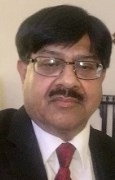 Dr. Abdul Shakoor Chaudhry is Lecturer in Animal Science & Nutrition and Senior Tutor, PG Taught Programmes at School of Natural & Environmental Sciences, Agriculture Building, Newcastle University, Newcastle upon Tyne, NE1 7RU, UK. He was elected member of British Society of Animal Science (BSAS, 2011-13 & 2013-16), Member, BSAS Programme Committee (2011-), Chair BSAS Academia Association (2016-17), Fellow Cambridge Philosophical Society (1990-) and Fellow Cambridge Commonwealth Society (1991-). Currently, he was selected for research grant of worth £378,969 at Newcastle University since 2001 as PI. He was Coordinator of multiple projects funded by British Council and HEC (£182,490). Moreover, he supervised (Sole or Principal Supervisor) 10 PhD, 8 Occasional PhD & advised 3 other PhDs, all representing Bangladesh, Indonesia, Iraq, Iran, Libya, Malaysia, Nigeria, Pakistan, Sudan and the UK. Additionally, he is the author of many Research papers, journal abstracts, books/chapters and reports of good scientific repute.
Dr. Abdul Shakoor Chaudhry is Lecturer in Animal Science & Nutrition and Senior Tutor, PG Taught Programmes at School of Natural & Environmental Sciences, Agriculture Building, Newcastle University, Newcastle upon Tyne, NE1 7RU, UK. He was elected member of British Society of Animal Science (BSAS, 2011-13 & 2013-16), Member, BSAS Programme Committee (2011-), Chair BSAS Academia Association (2016-17), Fellow Cambridge Philosophical Society (1990-) and Fellow Cambridge Commonwealth Society (1991-). Currently, he was selected for research grant of worth £378,969 at Newcastle University since 2001 as PI. He was Coordinator of multiple projects funded by British Council and HEC (£182,490). Moreover, he supervised (Sole or Principal Supervisor) 10 PhD, 8 Occasional PhD & advised 3 other PhDs, all representing Bangladesh, Indonesia, Iraq, Iran, Libya, Malaysia, Nigeria, Pakistan, Sudan and the UK. Additionally, he is the author of many Research papers, journal abstracts, books/chapters and reports of good scientific repute.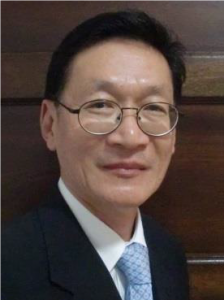 Cherdsak Virapat is currently Director-General of Network of Aquaculture Centres in Asia-Pacific (NACA). Before joining NACA, Mr. Virapat was the Executive Director of International Ocean Institute Headquarters (IOI HQ) in Malta during 2008-2014. He previously served as an officer of the Royal Thai Government for 27 years. He worked as a Fishery Biologist for the Department of Fisheries (DOF), Ministry of Agriculture & Cooperatives during 1981–1999. During 1986-1988, he was a Training Coordinator of the Northeast Fishery Project funded by the Canadian International Development Agency (CIDA). He was Chief of Small-Hold Aquaculture Development and Royal Initiatives Project Sub-Division, Fishery Engineering Division, DOF from 1999- 2002. He was appointed Director of IOI–Thailand Operational Centre by the Office of the Thai Marine Policy and Restoration Committee, Office of the Prime Minister, and worked voluntarily in this position during 2000–2008. He was also Head of the Public Sector Development Group, Ministry of Natural Resources & Environment, during 2003–2005 and Chief of International Coordination and Assistant Executive Director of Thailand's National Disaster Warning Center, Office of the Prime Minister and the Ministry of Information & Communication Technology, during 2005–2008. He holds a B.Sc. in Fishery Management from Kasetsart University, Bangkok, Thailand; an M.Sc. in Fishery Science from the University of Helsinki, Finland; and a Ph.D. in Fisheries Management from Dalhousie University, Halifax, Nova Scotia, Canada. While serving the Government of Thailand, he received the decoration, namely; the Most Exalted Order of the White Elephant and the Most Noble Order of the Crown of Thailand. He was awarded the Elisabeth Mann Borgese Medal in 2014 in recognition of his leadership of the IOI throughout his term of office, during which the IOI capacity development programme was further developed and expanded regionally, globally, and at post graduate level, and for his unfailing support to the mission of the IOI and the legacy of the IOI Founder, Prof. Elisabeth Mann Borgese. He was also awarded the gold medal in 2016 from the Asian Fisheries Society in recognition of his support and dedication to the work of the Society and as the Convener of 11th Asian Fisheries and Aquaculture Forum (11AFAF).
Cherdsak Virapat is currently Director-General of Network of Aquaculture Centres in Asia-Pacific (NACA). Before joining NACA, Mr. Virapat was the Executive Director of International Ocean Institute Headquarters (IOI HQ) in Malta during 2008-2014. He previously served as an officer of the Royal Thai Government for 27 years. He worked as a Fishery Biologist for the Department of Fisheries (DOF), Ministry of Agriculture & Cooperatives during 1981–1999. During 1986-1988, he was a Training Coordinator of the Northeast Fishery Project funded by the Canadian International Development Agency (CIDA). He was Chief of Small-Hold Aquaculture Development and Royal Initiatives Project Sub-Division, Fishery Engineering Division, DOF from 1999- 2002. He was appointed Director of IOI–Thailand Operational Centre by the Office of the Thai Marine Policy and Restoration Committee, Office of the Prime Minister, and worked voluntarily in this position during 2000–2008. He was also Head of the Public Sector Development Group, Ministry of Natural Resources & Environment, during 2003–2005 and Chief of International Coordination and Assistant Executive Director of Thailand's National Disaster Warning Center, Office of the Prime Minister and the Ministry of Information & Communication Technology, during 2005–2008. He holds a B.Sc. in Fishery Management from Kasetsart University, Bangkok, Thailand; an M.Sc. in Fishery Science from the University of Helsinki, Finland; and a Ph.D. in Fisheries Management from Dalhousie University, Halifax, Nova Scotia, Canada. While serving the Government of Thailand, he received the decoration, namely; the Most Exalted Order of the White Elephant and the Most Noble Order of the Crown of Thailand. He was awarded the Elisabeth Mann Borgese Medal in 2014 in recognition of his leadership of the IOI throughout his term of office, during which the IOI capacity development programme was further developed and expanded regionally, globally, and at post graduate level, and for his unfailing support to the mission of the IOI and the legacy of the IOI Founder, Prof. Elisabeth Mann Borgese. He was also awarded the gold medal in 2016 from the Asian Fisheries Society in recognition of his support and dedication to the work of the Society and as the Convener of 11th Asian Fisheries and Aquaculture Forum (11AFAF).
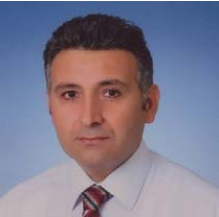 Prof. Dr. Mustafa YILDIZ is currently working as Professor of Aquaculture Nutrition at Faculty of Fisheries, Istanbul University, Turkey. His areas of Specialization include General Aquaculture and Fish Production, Fish Nutrition, Fish Feed Production and Technology, and Fish Farm
Management. Impressive record of proposal writing, securing funding from research and
industries, research success and a career of multiple publications (over 40 scientific articles and 35 presentations in conferences, workshops and technical meetings) in highly esteemed scientific and academic journals.
Prof. Dr. Mustafa YILDIZ is currently working as Professor of Aquaculture Nutrition at Faculty of Fisheries, Istanbul University, Turkey. His areas of Specialization include General Aquaculture and Fish Production, Fish Nutrition, Fish Feed Production and Technology, and Fish Farm
Management. Impressive record of proposal writing, securing funding from research and
industries, research success and a career of multiple publications (over 40 scientific articles and 35 presentations in conferences, workshops and technical meetings) in highly esteemed scientific and academic journals.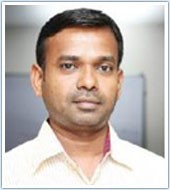 Jesu Arockia Raj is Professor of Life Sciences division at SRM Research Institute, SRM Institute of Science and Technology, Kattankulathur, India. He is also associated with the Department of Biotechnology of SRM Institute of Science and Technology, since June 2012. He received his doctoral degree from Manonmaniam Sundaranar University, Tirunelveli, India, where he established himself as a fisheries biotechnologist. Then, he moved to different Universities between 2003 and 2012 for his postdoctoral research. He developed his experience on fish biochemistry especially on fatty acid metabolism and regulation in marine fishes at Shantou University, China. At Ben-Gurion University of the Negev, Israel he established such a system of desert aquaculture engineering to culture marine fishes in deserts. Further, at Jeju National University, South Korea followed by University of Malaya, Malaysia he concentrated on construction of cDNA libraries of varies commercially important aquatic organisms including fish, shellfish and aquatic algae. Presently, at SRMIST he focused on development of transcriptome database for aquatic organisms to address the immunological parameters including cloning, sequencing, molecular characterization, gene expression, recombinant protein expression and purification. He has 9 research achievement awards. Moreover, he wrote 4 chapters in books and has 73 well reputed research publications with a total impact factor of 229.8. He isolated 102 genes, sequenced them and submitted to NCBI & EMBL Database.
Jesu Arockia Raj is Professor of Life Sciences division at SRM Research Institute, SRM Institute of Science and Technology, Kattankulathur, India. He is also associated with the Department of Biotechnology of SRM Institute of Science and Technology, since June 2012. He received his doctoral degree from Manonmaniam Sundaranar University, Tirunelveli, India, where he established himself as a fisheries biotechnologist. Then, he moved to different Universities between 2003 and 2012 for his postdoctoral research. He developed his experience on fish biochemistry especially on fatty acid metabolism and regulation in marine fishes at Shantou University, China. At Ben-Gurion University of the Negev, Israel he established such a system of desert aquaculture engineering to culture marine fishes in deserts. Further, at Jeju National University, South Korea followed by University of Malaya, Malaysia he concentrated on construction of cDNA libraries of varies commercially important aquatic organisms including fish, shellfish and aquatic algae. Presently, at SRMIST he focused on development of transcriptome database for aquatic organisms to address the immunological parameters including cloning, sequencing, molecular characterization, gene expression, recombinant protein expression and purification. He has 9 research achievement awards. Moreover, he wrote 4 chapters in books and has 73 well reputed research publications with a total impact factor of 229.8. He isolated 102 genes, sequenced them and submitted to NCBI & EMBL Database. Dr. Ram C. Bhujel Ram C. Bhujel completed MSc and PhD in Aquaculture from the Asian Institute of Technology (AIT), Thailand. He started career as a Research Associate and now serves as the Research Associate Professor at AIT. He has been teaching post-graduate students at AIT for over a decade. Recently, he established Aqua-Centre within the School of Environment, Resources and Development (SERD) of AIT and also serves as the founding Director of Aqua-Centre. He was a visiting Fellow at the University of Stirling, UK as well as at the University of Montpellier III, France.
Being based at AIT over 20 years, he has played a significant role in aquaculture and fisheries field through teaching, research, training, consultancy and outreach activities. He has an extensive experience of designing and implementing several international projects e.g. Curriculum Development (2005-2008) and Aqua-internship (2008-2011) funded by EU under Asia Link programs partnering with universities in Bangladesh, Cambodia, Nepal, Portugal, UK and Vietnam. He has also provided technical assistance to several private companies and also international development organizations; namely, FAO/UN, WorldFish, American Soybean Association (ASA) and several others. Currently, he coordinates a USAID funded project in Bangladesh, Cambodia and Nepal. He also has played a key role in designing and launching a community development project called “Entrepreneurship in Women (eWomen)” in Myanmar applying experience gained as the Team Leader of Women in Aquaculture (WiA) program in Nepal that has been launched since 2000 and Aquaculture without Frontiers since 2008.
Ram has published two books as a sole author; 1) Statistics for Aquaculture published by Wily-Blackwell Science and, 2) A Manual for Tilapia Business Management published by CAB International, as a sole author. He has over 100 scientific publications and chaired several conference sessions in international conferences as invited speaker and panel member of various national and international forums.
Dr. Ram C. Bhujel Ram C. Bhujel completed MSc and PhD in Aquaculture from the Asian Institute of Technology (AIT), Thailand. He started career as a Research Associate and now serves as the Research Associate Professor at AIT. He has been teaching post-graduate students at AIT for over a decade. Recently, he established Aqua-Centre within the School of Environment, Resources and Development (SERD) of AIT and also serves as the founding Director of Aqua-Centre. He was a visiting Fellow at the University of Stirling, UK as well as at the University of Montpellier III, France.
Being based at AIT over 20 years, he has played a significant role in aquaculture and fisheries field through teaching, research, training, consultancy and outreach activities. He has an extensive experience of designing and implementing several international projects e.g. Curriculum Development (2005-2008) and Aqua-internship (2008-2011) funded by EU under Asia Link programs partnering with universities in Bangladesh, Cambodia, Nepal, Portugal, UK and Vietnam. He has also provided technical assistance to several private companies and also international development organizations; namely, FAO/UN, WorldFish, American Soybean Association (ASA) and several others. Currently, he coordinates a USAID funded project in Bangladesh, Cambodia and Nepal. He also has played a key role in designing and launching a community development project called “Entrepreneurship in Women (eWomen)” in Myanmar applying experience gained as the Team Leader of Women in Aquaculture (WiA) program in Nepal that has been launched since 2000 and Aquaculture without Frontiers since 2008.
Ram has published two books as a sole author; 1) Statistics for Aquaculture published by Wily-Blackwell Science and, 2) A Manual for Tilapia Business Management published by CAB International, as a sole author. He has over 100 scientific publications and chaired several conference sessions in international conferences as invited speaker and panel member of various national and international forums. Mahanama De Zoysa (PhD), is working as Associate Professor from March 2015-present, at College of Veterinary Medicine, Chungnam National University, Daejeon, Republic of Korea.
He has served this Institute as Assistant Professor from July 2012-February 2015 and Lecturer from September 2010-June 2012. He has been as Post-Doctoral Research Associate from March 2010-August 2010 at School of Marine Biomedical Sciences, JejuNational University(JNU), Korea, Research Assistant from March 2007-February 2010 at Department of Aquatic Life Medicine, JNU, Korea and Research Assistant from March 2005-February 2007 at Department of Marine Biotechnology, JNU, Korea. His research interests are Diseases and immunogenetics of fish and shellfish, Development of immune-stimulants and antimicrobial agents, Applications of nanoparticles in biology and medicine, Assessing drug safety and toxicity using the zebrafish model. He has visited many countries for paper presentation and also published many papers in the national and international journals
Mahanama De Zoysa (PhD), is working as Associate Professor from March 2015-present, at College of Veterinary Medicine, Chungnam National University, Daejeon, Republic of Korea.
He has served this Institute as Assistant Professor from July 2012-February 2015 and Lecturer from September 2010-June 2012. He has been as Post-Doctoral Research Associate from March 2010-August 2010 at School of Marine Biomedical Sciences, JejuNational University(JNU), Korea, Research Assistant from March 2007-February 2010 at Department of Aquatic Life Medicine, JNU, Korea and Research Assistant from March 2005-February 2007 at Department of Marine Biotechnology, JNU, Korea. His research interests are Diseases and immunogenetics of fish and shellfish, Development of immune-stimulants and antimicrobial agents, Applications of nanoparticles in biology and medicine, Assessing drug safety and toxicity using the zebrafish model. He has visited many countries for paper presentation and also published many papers in the national and international journals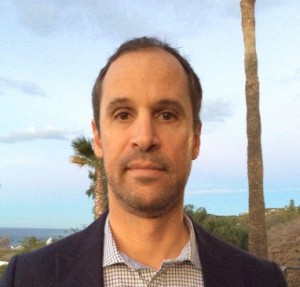 Dr. Juan Pablo Lazo Corvera is Professor-Senior Scientist, at Department of Aquaculture, Center for Scientific Research and Higher Education of Ensenada (CICESE).
Dr. Lazo had been Ex-President of World Aquaculture Society (2016-2017). He did his Ph.D. from University of Texas at Austin, Marine Science Institute, Port Aransas, Texas. Currently, he is serving as Professor-Senior Scientist, Department of Aquaculture, Center for Scientific Research and Higher Education of Ensenada. His research responsibilities include the development and management of an externally funded research program in marine fish nutrition for species of economic importance with a strong collaboration with the industry. He had been awarded with title of “Distinguished Researcher Level I and Level II” from National Science Foundation. He has also supervised a number of Masters and Ph.D students. He has also won a number of research grants. He has published 29 significant peer-reviewed publications and has been author of 5 significant books and chapters. He is currently member of renowned professional societies such as World Aquaculture Society, American Fisheries Society and National Association of Underwater Instructors (NAUI), Divemaster.
Dr. Juan Pablo Lazo Corvera is Professor-Senior Scientist, at Department of Aquaculture, Center for Scientific Research and Higher Education of Ensenada (CICESE).
Dr. Lazo had been Ex-President of World Aquaculture Society (2016-2017). He did his Ph.D. from University of Texas at Austin, Marine Science Institute, Port Aransas, Texas. Currently, he is serving as Professor-Senior Scientist, Department of Aquaculture, Center for Scientific Research and Higher Education of Ensenada. His research responsibilities include the development and management of an externally funded research program in marine fish nutrition for species of economic importance with a strong collaboration with the industry. He had been awarded with title of “Distinguished Researcher Level I and Level II” from National Science Foundation. He has also supervised a number of Masters and Ph.D students. He has also won a number of research grants. He has published 29 significant peer-reviewed publications and has been author of 5 significant books and chapters. He is currently member of renowned professional societies such as World Aquaculture Society, American Fisheries Society and National Association of Underwater Instructors (NAUI), Divemaster. MÜGE ALİYE HEKİMOĞLU is an Associate professor in Ege University, Faculty of Fisheries. 35100. Bornova-IZMIR. TURKEY. She obtanined her PhD Degree from Fisheries collage at Ege University in 1997 and her dessertation topic was “Establishment of Appropriate Breeding Program for a Population of a Sea Bass (Dicentrarchus labrax)”. Her academic activities include: The Teacher Field Experience: Freshwater Ecology workshop İn Chicago Sheed Aquarium, USA (19-24/07/2010); Regional Training on Aquaculture Production Systems Including Cage Culture Course (2-5/10/2012); Participation Import and Export Practices of Aquatic Products Course (2013) and Course of Using Experimental animal (HADYEK). Her research experiments focus on Aquarium fishes, Aquarium Technology, Aquaculture of aquarium fish, Ornamental marinefish for Aquarium, Aquaculture facilities and project and Fish Breeding. Dr. HEKİMOĞLU is the author of one book and 19 research articles. Currently, she is the part of 9 Research projects as Project Manager and researcher.
MÜGE ALİYE HEKİMOĞLU is an Associate professor in Ege University, Faculty of Fisheries. 35100. Bornova-IZMIR. TURKEY. She obtanined her PhD Degree from Fisheries collage at Ege University in 1997 and her dessertation topic was “Establishment of Appropriate Breeding Program for a Population of a Sea Bass (Dicentrarchus labrax)”. Her academic activities include: The Teacher Field Experience: Freshwater Ecology workshop İn Chicago Sheed Aquarium, USA (19-24/07/2010); Regional Training on Aquaculture Production Systems Including Cage Culture Course (2-5/10/2012); Participation Import and Export Practices of Aquatic Products Course (2013) and Course of Using Experimental animal (HADYEK). Her research experiments focus on Aquarium fishes, Aquarium Technology, Aquaculture of aquarium fish, Ornamental marinefish for Aquarium, Aquaculture facilities and project and Fish Breeding. Dr. HEKİMOĞLU is the author of one book and 19 research articles. Currently, she is the part of 9 Research projects as Project Manager and researcher.